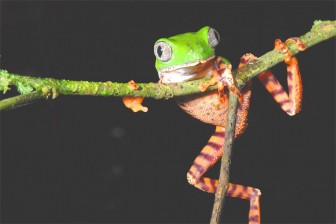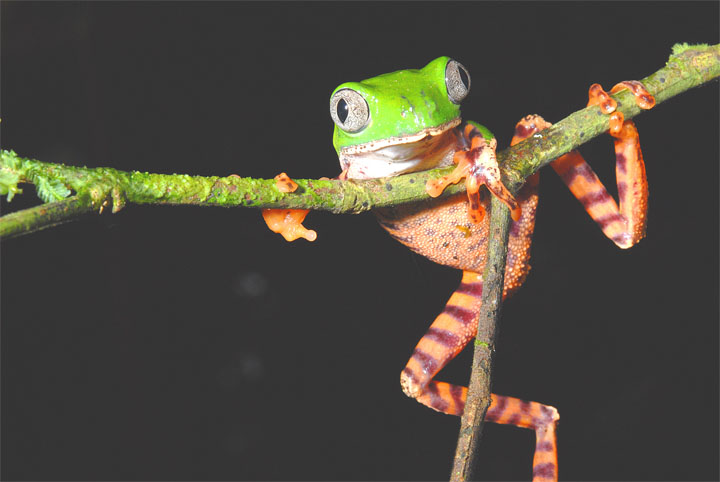The Tiger-striped leaf frog (Phyllomedusa tomopterna), found in the Iwokrama Forest, Guyana, is one of the smallest species in the tree frog genus Phyllomedusa.
 It is usually associated with pristine tropical rain forest habitats and exhibits a peculiar life-history strategy. This arboreal species deposits eggs in ‘leaf nests’ (folded leaves in which eggs are laid) over lentic aquatic sites.
It is usually associated with pristine tropical rain forest habitats and exhibits a peculiar life-history strategy. This arboreal species deposits eggs in ‘leaf nests’ (folded leaves in which eggs are laid) over lentic aquatic sites.
Tadpoles eventually hatch and drop into the water below where tadpoles complete their development. This photo, taken by Raffael Ernst, made the front page of the current issue of Global Ecology and Biogeography.
Rain forests are rich in biodiversity and are home to many different plants and animals as well as indigenous communities. Humans, even those who don’t live in the rain forest, rely on it for resources such as building materials (wood and lianas), medicine and fruits.
Rain forests also provide essential environmental services for life on earth; they create soil as well as prevent soil erosion, produce oxygen though photosynthesis, maintain clean water systems, and are a key defence against climate change.
The Iwokrama Rain Forest is 371,000 hectares, located in the heart of Guyana. Our mission is to develop strategies for conservation and sustainable development for local people in Guyana and the world at large. We are involved in timber, tourism and training. Come and visit us in the rain forest or at http://www .iwokrama.org.










